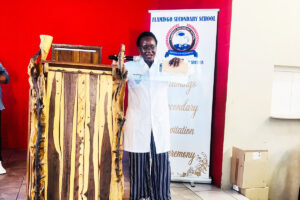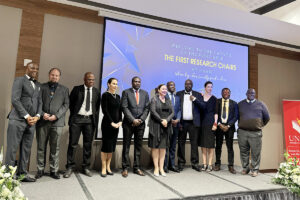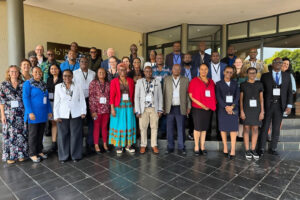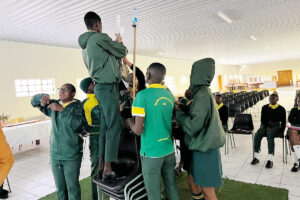A group of Master of Business Administration (MBA) students from the Namibia Business School recently explored Namibia’s most sustainable envisaged mining practice pioneered by Headspring Investments in Leonardville, Omaheke and the complexities of sustainable practices.
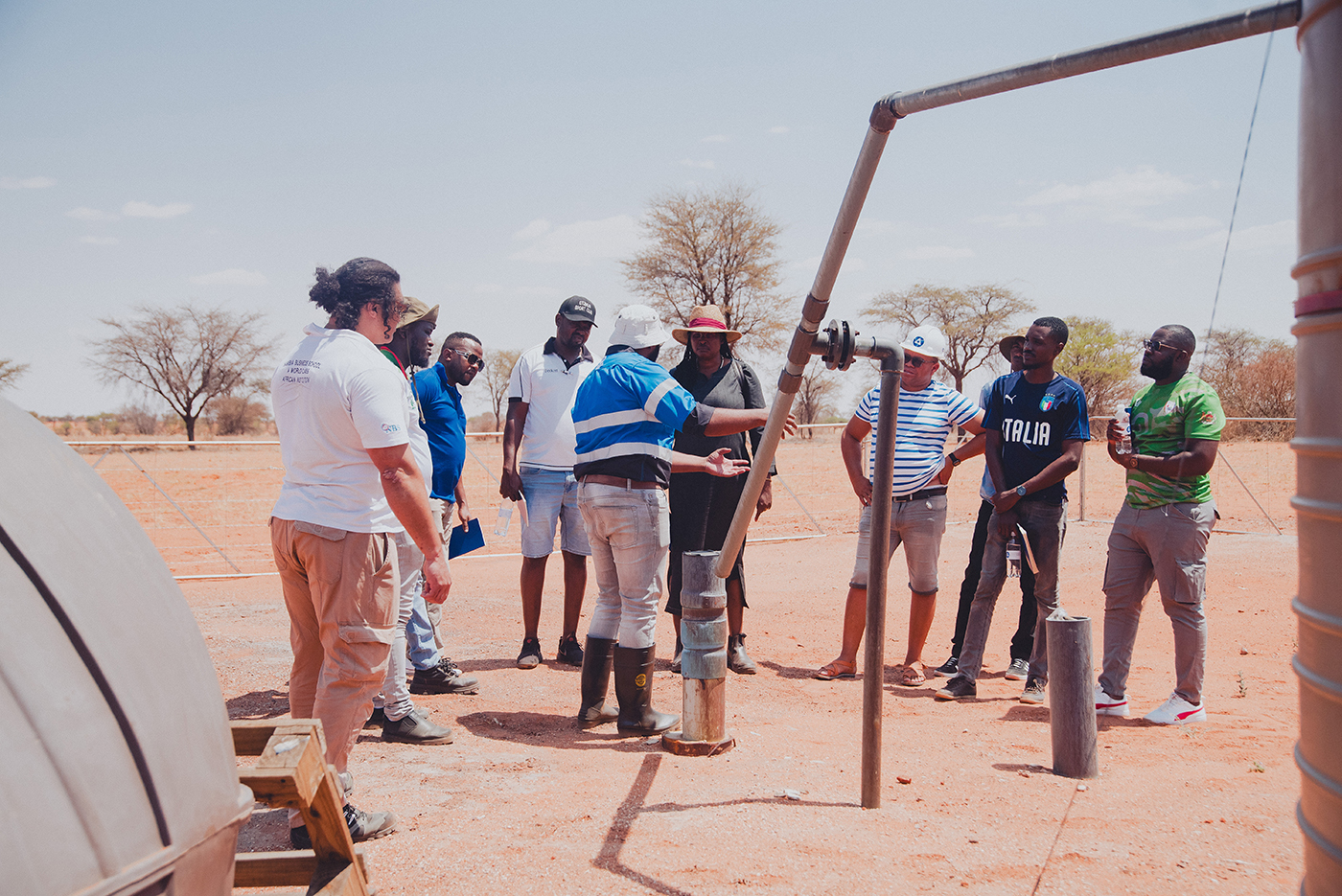
Headspring Investments is a uranium mining affiliate of the world’s third-largest uranium producer – Uranium One Group.
The field trip led by Dr. Marius Johannes, Natural Resource Management lecturer, and hosted by Aldo Hengari, Operations Director of Headspring Investments sought to observe and critically engage with the complex interplay between economic development, novel mining practices, and environmental stewardship.
The tour focused on the envisaged In-Situ Recovery (ISR) mine, which provided students with firsthand insights into the proposed sustainable method of extraction that looks to extract uranium from previously challenging low-grade sandstone-hosted deposits ensuring environmental friendliness, efficient extraction, and cost-effectiveness.
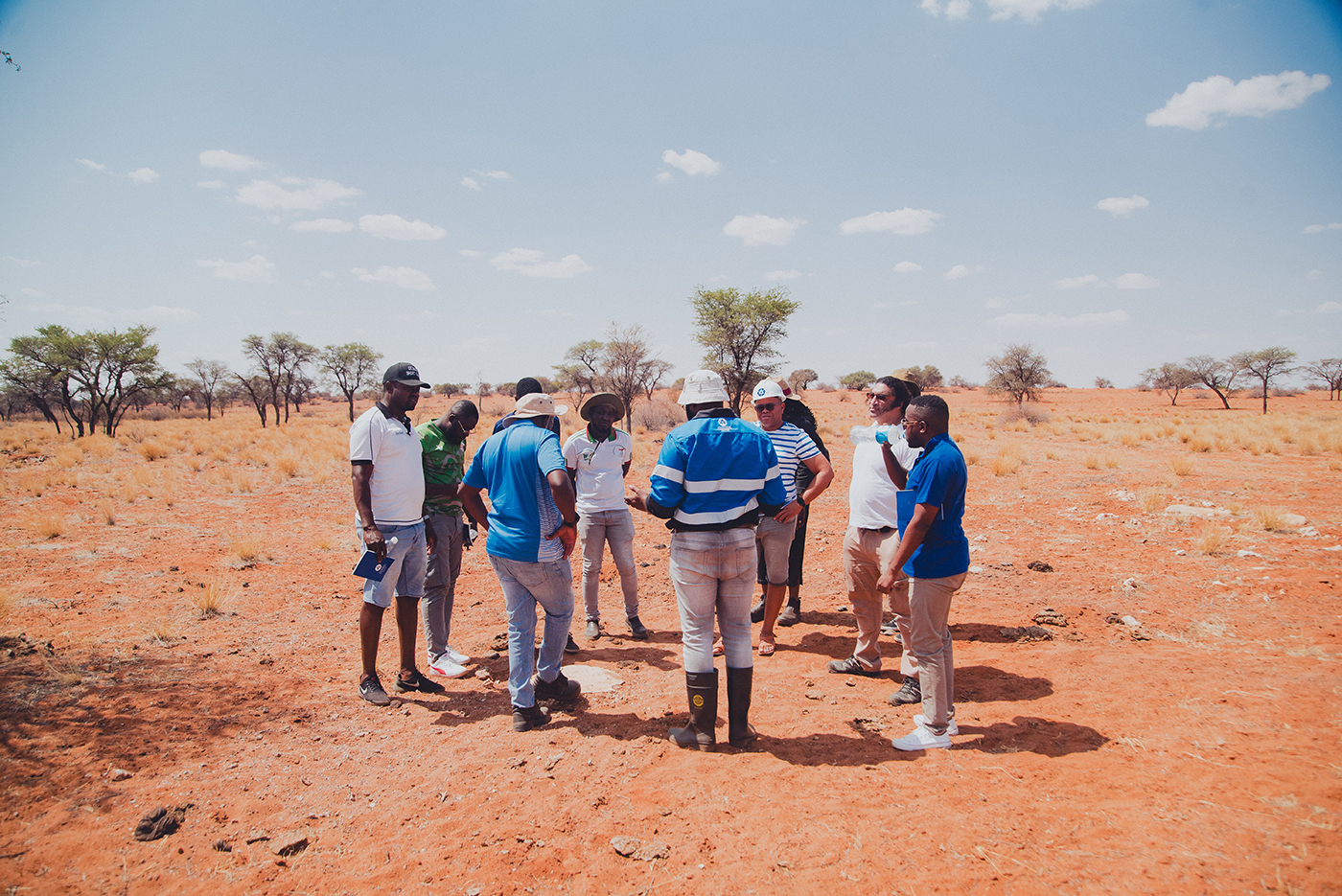
This method using novel mining technologies demonstrates Headspring Investments mining technological and strategic efforts towards minimising environmental impacts. “Our commitment goes beyond compliance. It’s about integrating sustainable methods into every facet of our operations,” shared Hengari with the group.
He further indicated that compliance is imperative in the mining industry and that though this sustainable practice is proven, there are “ongoing efforts to get approval for the pilot test mining and hydrological studies of the area which will be very crucial in providing real-time data on environmental impact in Namibia. These findings will guide the company on which best mitigation techniques will be used to improve the project’s environmental management systems upon commencement”, said Hengari.
“Since our first mining activity in Leonardville, we have sponsored the construction of one secondary school, a newly built kitchen at the primary school, clinic, police station, post office (NamPost) and a fish farm indicating our commitment to support economic development in the areas we mine”, said Hengari.
During the visit, MBA students carefully criticised while also noting the intricacies of the mines waste management, socio-economic benefits for the community, and the long-term environmental risk and disruption to the groundwater and euchology. Clarence-Nocky Kaapehi, an MBA student specialising in Natural Resource Management noted that “the visit clarified the practical challenges of implementing sustainable practices in environments that are as demanding as they are fragile”.
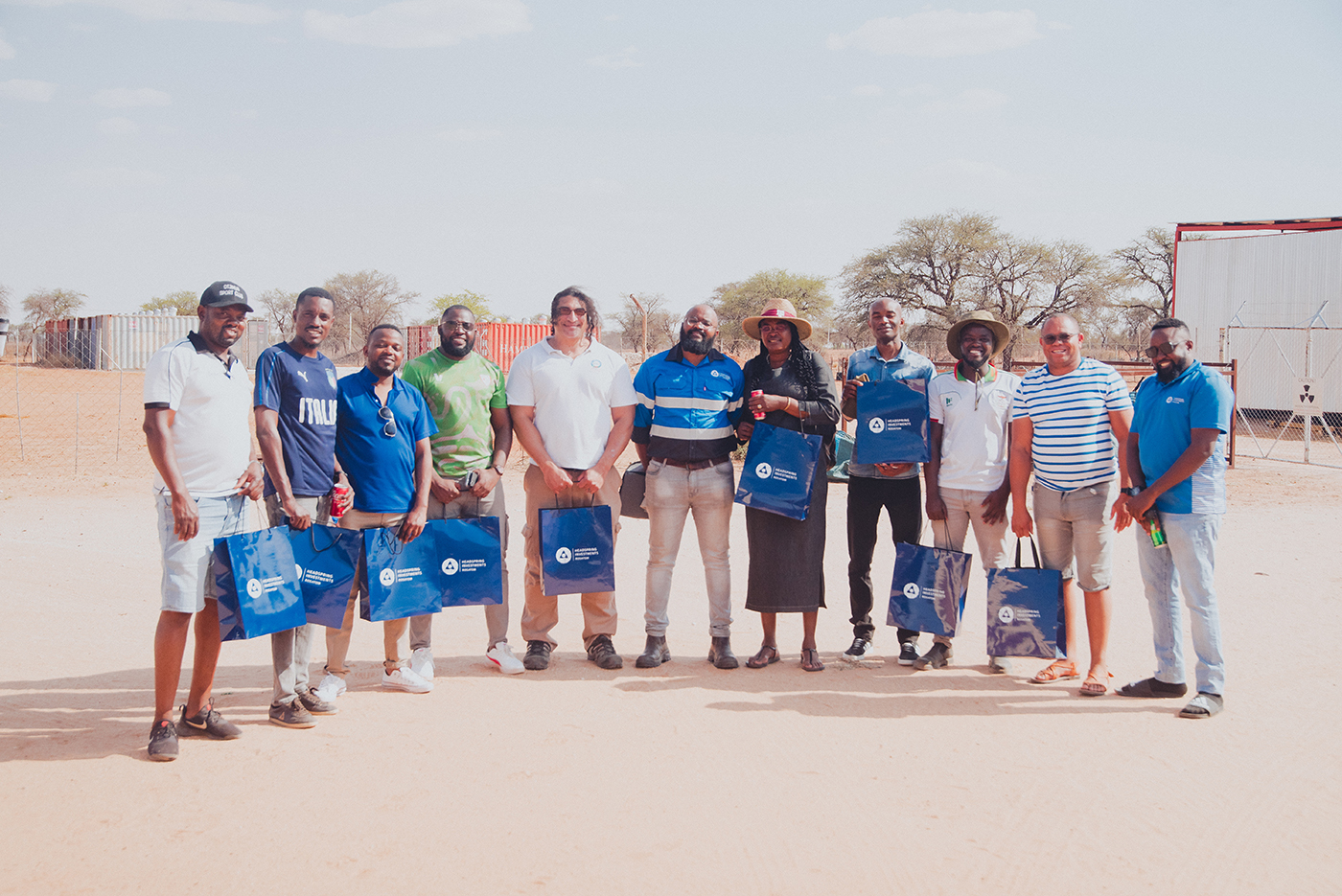
Eradius Mwaetako, MBA student specialising in Natural Resource Management, with a decade of frontline experience in mining “compared the trip and information gathering as critical to balance data and decision making”. Other students further noted that this experience bridged the gap between theoretical knowledge and real-world application, highlighting the nuanced realities of the mining sector in Namibia.
Dr. Johannes emphasised the importance of such field visits in educating responsible business leaders who are prepared to tackle the pressing issues of our times. “Our goal is to cultivate a new generation of managers who are not only skilled in business but are also stewards of environmental integrity and social responsibility”.
The visit to the Wings Project is just one of many steps the University of Namibia is taking to integrate practical, on-ground experiences into its curriculum, ensuring that its graduates are well-equipped to lead in the complex landscape of modern business and sustainability.


